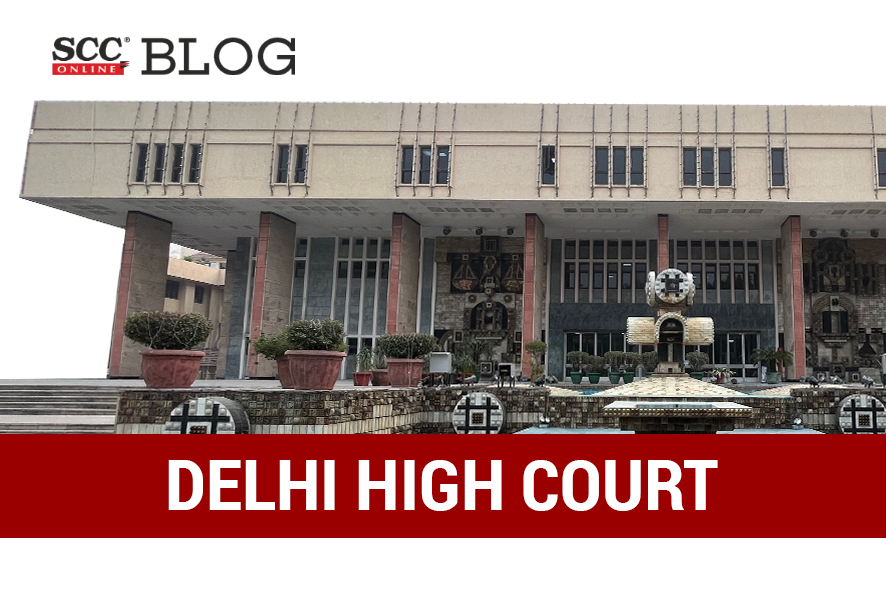Delhi High Court: In an appeal filed by Keshaw Sanyasi Gawo Shewashram (appellant) against an order dated 10-02-2023 passed by the Single Judge relating to an eviction notice issued by the Public Welfare Department (Respondent 2), for the land occupied by the appellant, a division bench of Satish Chandra Sharma CJ., and Subramonium Prasad, J., did not interfere with the impugned order as the case involves the question of facts to be determined only by leading evidence. It further held that the right to housing is a part and parcel of the right to livelihood, health, food, clean drinking water, sewage and transport facilities, such facilities must be provided to individuals who will be relocated to Geeta Colony, Dwarka.
The appellant herein is a trust established for the purpose of maintaining a Shiv Temple and Gaushala and is located at Shiv Hanuman Mandir, Bhairo Road, New Delhi. It is stated that the petitioner looks after ailing, old, and abandoned cows. Apart from the Shiv Temple, and said cow shelter, the said premises are also home to certain jhuggis dwellers.
On 28-01-2023, Respondent 2 passed eviction notices for all such premises located at Bhairo Road, New Delhi directing the occupants to vacate the premises within 15 days, failing which will result in their removal. The notice also states that they would be relocated to the Shelter Home at Dwarka, Geeta Colony where they could reside for a period of 3 months.
The Gaushala, being located at the same premises is aggrieved and filed a petition seeking the quashing of the impugned notice and the issuance of appropriate directions prohibiting the respondents from carrying out demolition/evacuation proceedings in the said premises. The Single Judge held that the premises in question do not come within the jhuggi cluster which has been notified as per the Delhi Slum and JJ Rehabilitation and Relocation Policy, 2015, and thus, the occupants of the premises were not entitled to protection from demolition.
The Court noted that prior to Delhi Slum and JJ Rehabilitation Relocation Policy, 2015, the Government had formulated the Delhi Urban Shelter Improvement Board Act, 2010 for the rehabilitation of Jhuggi dwellers. The Act establishes the Delhi Urban Shelter Improvement Board (DUSIB), a nodal agency for the implementation of the said policy. It lays down its duties which include inter alia the preparation of a scheme for resettlement, improvement and redevelopment of the jhuggi dwellers.
The Court further noted that on perusal of the DUSIB Act read with the said policy indicates that in order to get the benefit of the said policy, a jhuggi jhopri basti cluster defined under the Act, ought to have been in existence prior to 01-01-2006 and the person should have constructed his jhuggi within the cluster prior to 01-01-2015. Thus, in case a jhuggi was not notified under the Act, the same did not exist before 01-01-2006, and hence, individuals residing at such jhuggis cannot claim in-situ rehabilitation.
The Court opined that merely because the cow shelter and Shiv Temple are in a ‘notified’ cluster, by itself, it is not sufficient to attract the DUSIB Policy, 2015 for the purpose of rehabilitation. For getting the benefit of the said policy, the jhuggi should be in a jhuggi jhopri basti which has come up before 01-01-2006 and the jhuggi should be in existence prior to 01-01-2015 inside the jhuggi jhopri basti which has come up before 01-01-2006 and has been identified by the DUSIB as one of the clusters which are entitled to the benefit of rehabilitation under the DUSIB Policy.
The Court did not interfere with the impugned order for the following reasons:
-
In case the appellant is within the cluster, then they must take remedies under civil law and substantiate their assertion by leading evidence and writ would not be the appropriate remedy in such a case.
-
The Appellant failed to place anything on record to contradict the position of the Respondent that the jhuggis at the said premises did not exist prior to 01-01-2006.
-
In the aspect of the cow shelter and temple being 15 and 30 years respectively, it is a pure question of fact to be proven by leading evidence, thus, the same cannot be adjudged by this court in its writ jurisdiction.
-
Single Judge bench has already directed that alternate shelter should be provided to cows.
[Keshaw Sanyasi Gawo Shewasharam v Govt of NCT, 2023 SCC OnLine Del 1611, decided on 17-03-2023]
Advocates who appeared in this case :
Mr. Mimansak Bhardwaj, Advocate for the Appellant;
Mr. Anuj Aggarwal, Advocate for R-1/ GNCTD;
Mr. Parvinder Chauhan, Advocate forR-2/ DUSIB.






